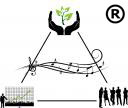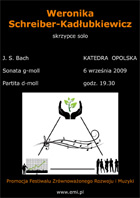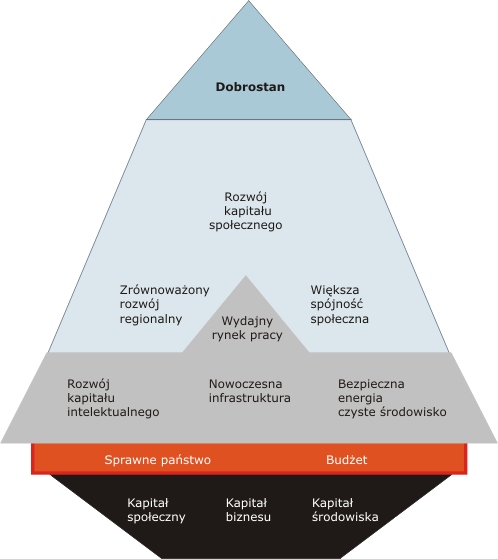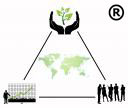In 2013 European Commission published the “Tips and Tricks for Advisors – Corporate Social Responsibility for Small and Medium-Sized Enterprises” . Quatation from this guidebook:
“This guidebook is based on the 2011 understanding of corporate social responsibility (CSR) developed by the European Commission, in which it is defined as, “the responsibility of entrprises for their impacts on society”. Furthermore it states that “Respect for applicable legislation, and for collective agreements between social partners, is a prerequisite for meeting that responsibility. To fully meet their corporate social responsibility, enterpises should have in place a process to integrate social, environmental, ethical, human rights and consumer concerns into their business operations and core strategy in close collaboration with their stakeholders, with the aim of:
– maximising the creation of shared value for their owners/shareholders and for their other stakeholders and society at large;
– identifying, preventing and mitigating their possible adverse impacts.
The complexity of that process will depend on factors such as the size of the enterprise and the nature of its operations. For most small and medium-sized enterprises, especially micro-enterprises, the CSR process is likely to remain informal and intuitive.””
The strategic thinking is the base of the implementation of CSR, we can say also the sustainable development rules. The way of implementation depends of the kind of enterpise but is the chalenge for all, the biggest and the smallest, even self-employment enterprises.
Everybody, every person, has to change the way of thinking and acting…
Kategoria: Sustainable development Blog, CSR | Komentarze wył. »
Innowacyjność umieszczono w sercu Strategii Europa 2020. Ponieważ obywatel jest stroną Strategii Europa 2020, oznacza to, że rozwój wewnętrzny każdego z nas ma kolosalny wpływ na realizację tej strategii, budowę społeczeństwa obywatelskiego i rozwój kraju.
Kategoria: Sustainable development Blog | Komentarze wył. »
Kategoria: CO2 / Zmiana klimatu | Komentarze wył. »
Kategoria: Sustainable development Blog | Komentarze wył. »
Czy zrównoważony rozwój to tylko hasło związane z funduszami unijnymi, czy też “prawidło” życia naszych czasów?
Uważam że:
- – naukowcy spotykają się na konferencjach, gdzie we własnym gronie dzielą się swoimi przemyśleniami na temat zrównoważonego rozwoju, bez szerokiego przekazu dla mediów, polityków i dla społeczeństwa;
- – w urzędach powstają dokumenty planistyczne niezbędne w procedurach pozyskiwania funduszy unijnych, w których zapis na temat zrównoważonego rozwoju ma miejsce, bo jest tam niezbędny ze względu na politykę Unii Europejskiej;
- – strategię zrównoważonego rozwoju duże przedsiębiorstwa publikują na stronach internetowych, ale głównie w celach marketingowych;
- – średnie i małe przedsiębiorstwa nic na ten temat nie wiedzą lub uważają z góry, że ich na to nie stać, że mają większe własne problemy;
- – wartości odżywcze żywności są coraz gorsze, rolnictwo jest bardziej nastawione na zysk niż na gospodarkę ziemią i produktami rolnymi w duchu zrównoważonego rozwoju;
- – koncerny farmaceutyczne i usługi medyczne głównie liczą się z zyskiem;
- – uczelnie zaznajamiają studentów z problematyką zrównoważonego rozwoju;
- – szkoły zaznajamiają uczniów z ekologią;
- – media wolą nagłaśniać wypadki transportowe i wpadki polityków…
Kategoria: Sustainable development Blog, CSR | Komentarze wył. »
Najnowsza Strategia Unii Europejskiej EUROPA 2020 – strategia na rzecz inteligentnego i zrównoważonego rozwoju sprzyjającego włączeniu społecznemu – to strategia w zasadzie implementująca strategię Sustainable Development Strategy (SDS). Mówi wprawdzie o innych trzech filarach, ale wczytując się dokładnie w treść strategii EUROPA 2020 znajdujemy implementację podejścia opartego na rozwoju kapitału biznesu, rozwoju kapitału społecznego i ochronie środowiska (a więc ochronie i rozwoju kapitału środowiska). Czytaj całość …
Kategoria: Sustainable development Blog | Komentarze wył. »
Sorry, this entry is only available in Polski.
Kategoria: Sustainable development Blog | Komentarze wył. »
Voice in the public discussion on the Green Paper “POLAND 2030 – Development challenges”
On June 17, 2009, the Prime Minister of Poland, Donald Tusk presented a report “POLAND 2030 – Development challenges.” The document presents 10 biggest challenges Poland will be facing within the next two decades:
- Growth and competitiveness
- Demographic condition
- High professional activity and adaptiveness of labour resources
- Adequate infrastructural potential
- Energy and climate safety
- Economy based on development of knowledge and intellectual capital
- Solidarity and regional cohesion
- Improvement of social cohesion
- Performing state
- Poland’s social capital growth.
The expression ‘sustainable development’ has been used several times , sometimes with additional word: ‘regional.’ It is clear that the report, which is to be the framework for a long-term Strategy for Development of Poland, does no implement the EU Sustainable Development Strategy (UE SDS) –http://ec.europa.eu/sustainable/docs/renewed_eu_sds_pl.pdf, which according to the EU takes priority over the Lisbon Strategy. This means that as of today Poland has no binding Sustainable Development Strategy and it will not have one in the near future, unless the public discussion on the Report changes it.
In September 2009 Member States of EU plan the analysis of SDS implemention in the countries of EU …
In the face of the above, talking about ‘civilisational leap’ – isn’t it slightly exaggerated?
I am afraid that the presented polarisation and diffusion model of development does not guarantee the civilisational leap (the model can be found in the section “POLAND 2030 – Development Changes FINAL RECOMMENDATIONS,” page 375 of the Report in Polish and page 6 in English version of Final Recomendations http://www.polska2030.pl/ ).
Justification:
Only demographic development, economic growth and performing state were assumed as solid foundations for development of Poland. Out of three sustainable development capitals, the authors of the report notice only two: social and economic (performing state is the social capital). THEY FAIL TO SEE THE ENVIRONMENTAL CAPITAL!
The planned policies and indicators of success do not include topics related to the environment.
Till 2030 no changes are planned in the tax system toward shifting the tax burden from labour to consumption of resources and energy or environmental pollution.
Lack of the environmental capital in Poland’s development foundations will result in financial problems faced by local communities in implementing delegation of tasks and services pertaining to, for example, social circles – (planned Welfare Society).
Communication, education, labour market, social trust, performing state are all very important development factors, but failing to include the environmental capital in the foundations for development of Poland for the next 20 years is a big mistake. Reasonably used environmental capital may provide a big labour market and generate enormous profits in the long term – the Report discusses long term issues! Integration of three aspects (business, society, environment) with each action is crucial.
Proposal to amend the model
How different is this model comparing to one presented by the authors of POLAND 2030 report? It is the vision of including the environmental capital, as significant dimension of each action, irrespective of whether related to production, service, finances, administration, healthcare sector, culture, sports, or tourism. This is the vision which cares about the quality of life, the well-being in which the shift is made from “to have” to “to be.” It does not imply an obstacle to the development but rather indicates a direction fitting for the 21st century.
Under the environmental law, which defines sustainable development, the Report, which aspires to be a base for strategy, is subject to the environmental impact assessment.
I think some significant changes should be made in the model presented by the authors of the Poland 2030 – as for example those presented above. Otherwise the environmental impact assessments of strategies and programs created in the framework of the version of the report “POLAND 2030 – Development challenges,” published in June 2009, should be negative.
Additional proposal
Inclusion of the Balanced Scorecard in the Polish management process, where the economy, society and the environment would be treated as the “Client,” is another thought to ponder. In other words,tokens of success described in the Report should be extended by target environmental quality indicators.
Wanda Pazdan
Kategoria: Sustainable development Blog | Komentarze wył. »
SDS – the text of UE Sustainable Development Strategy.
Kategoria: Sustainable development Blog | Komentarze wył. »
At this moment Poland is developing new strategy. Now we do not have NSDS. We live in theDecade of Education for Sustainable Development.There is only one way of continuous and consistent efforts to increase public awareness, i.e. through growing responsibility of each organizational unit including our government and each one of us.
Human being as an organism acts and develops in a specific environment. There is a close relationship between him and the world around him. Emotions are the way we relate to the surrounding stimuli, information. The established sustainable development strategy includes in itself measurable goals. Their implementation is largely dependent on the motivation of each Pole, as during implementation of sustainable development, interaction between people and business, social and administrative entities is a significant factor.
Secondary emotions are emotions developed on the basis of personal inclinations together with some experience gained through our life. That is why the Committee of the Regions calls for education about sustainable development starting at the day or child care center level… Culture marks out trends of thinking and, as a result, impressions of individual persons result in the so called secondary emotion, as distinguished from primary emotion, in which automatism plays the major role. Emotions related to sustainable development, motivations of individual organizational entities, as well as inhabitants depend on the way the authorities form the sustainable development strategy, the way they promote it and on the quality of engagement of culture and education.
Quotation from Stefan Kozłowski’s last publication “Zrównoważony rozwój – program na jutro” [transl. “Sustainable Development – Program for Tomorrow”] Abrys Poznań-Warszawa 2008 (publication enjoys the Honorary Patronage of Prof. Maciej Nowicki, Minister of the Environment):
“…Another world summit on issues of the environment and development should be organized in 2012. Preparations to this summit should be well under way right now. Lesław Michnowski, an outstanding theorist of eco-development [Wanda Pazdan’s note ekorozwój (eco-development ) in Polish also means zrównoważony rozwój i.e. sustainable development] , has been seeking to have this summit in Warsaw for many years.
The European sustainable development strategy is a huge challenge for the European Union countries. By joining the EU in 2004, Poland became automatically obliged to implement this strategy. It turned out that its implementation has a lot of setbacks and barriers. Some of them are, for example:
– the lack of a governmental committee on sustainable development,
– the lack of a strategy for protection and sustainable use of biodiversity,
– the lack of a current concept for area development for the whole country,
– the lack of organizational structures for management of Ecological NATURA 2000 Network,
– delays in implementation of the EU directives…
…The lack of political will for implementation of the EU directives has already resulted in serious conflicts with the European Commission. In 2007, the European Commission asked the European Court of Justice to punish Poland for faulty marking out of NATURA 2000 areas and their management. Those motions are related to the conflict about transport solutions in the area of the Rospuda Valley, as well as the extension of the cable car system to Kasprowy Wierch mountain. Those examples indicate that there are still no fully formed mechanisms for solving local conflicts in accordance with European standards in Poland. Involving politics in those conflicts results in disastrous procedural and social consequences. Instead of education in the spirit of respect to natural resources, individual political parties, fanned by their ambitions, bring about negative attitudes to the natural environment in local communities. Actions of this type by our political class constitute an enormous threat to the implementation of the European environmental policy. The result may be very severe financial penalties and even suspension of investment grants (especially for road infrastructure) awarded to Poland for the period between 2007 and 2013… If we think about radical improvement and want to implement assumptions of sustainable development, we must change our perspective on life and mental attitude. If possible, only by systematic education of the younger generations to think holistically, globally, ecologically. Current education system, however, encourages rationalistic, mechanistic approach to life. … Campaign on reasons and effects of global climate change and methods of curbing them, carried out in 2006 and 2007 and initiated by the former vice-president of the United States, a renown champion of sustainable development, Al Gor, made many societies aware about the necessity to change current way of development. In Poland, however, the campaign was not well-publicized. Stronger and stronger integration with the European Union may prove to be the most crucial chance for sustainable development of Poland, taking into consideration all its pillars, including forming its natural and cultural sphere. Decisions by the European Parliament and the European Commission, especially those in form of directives which must be implemented throughout the Community, aim at sustaining balance between natural, social and economic aspects. Both the European Treaty and its two main development strategies – Lisbon, dealing mainly with economic issues, and Gothenburg, related to sustainable development, through gradual implementation in Poland, may bring us closer to desirable results and all the more so as in each successive decade the inflow of EU funds will play a deciding role in our development. Control of how they are spent, among other things, adherence to the sustainable development criterion, will constitute one of the basic methods of achieving goals of eco-development. In a modern, civilized state no other way should be even considered…” end of quotation
SDS UE
Kategoria: Sustainable development Blog | Komentarze wył. »
Last year, a number of companies which crop up increased significantly when we enter the following terms, in Polish or in English, in the Google search engine:
Odpowiedzialny biznes (responsible business),
Zrównoważony rozwój (sustainable development),
CSR (Corporate Social Responsibility),
Ethical Corporation,
Accountability.
This is really encouraging, especially, if apart from expressing it in words and announcing on the Internet, an organizational unit decides to put the sustainable development strategy into actual plans of action, integrating it into its entire internal management system and using it during cooperation with customers or partners.
It is a shame, however, that only the media dealing with environmental protection write about this.
In Poland, the Ministry of Economy is currently the leader in implementing sustainable development. There is still no person who would act as a coordinator managing sustainable development of Poland at the level of the government of the Republic of Poland.
To the main measurable goals of the Strategy for Sustainable Development of Poland to 2025 belong maintaining about 5% economic growth and, as a target value, four times increase in efficiency of utilization of raw materials, fuels, and natural resources.
Among other things, we do not have any specified goals for reduction of CO2 in the aforementioned document…, but we organize COP14.
Business in Poland, regardless of the political parties in power, has a chance to put the principles of sustainable development into practice.
The 19th century was a century of industry, the 20th – belonged to science and computer technology, but the 21st century, experts say, will be a century when the needs of various communities and respect to the natural environment will be incorporated into business.
Last year CSR even managed to become part of the governmental policy in several countries in Europe and around the world. Governments of many countries have appreciated the role of corporate social responsibility. A discussion on the new role of business in society has been in progress.
In July, 2008, the COM(2008) 397 document was published, namely, the Communication from the Commission to the European Parliament, the Council, the European Economic and Social Committee and the Committee of the Regions on the Sustainable Consumption and Production and Sustainable Industrial Policy Action Plan.
As early as in 2006, the Commission issued the COM(2006) 136 document, i.e. a Communication on Making Europe a Pole of Excellence on Corporate Social Responsibility.
Kategoria: Sustainable development Blog, CSR | Komentarze wył. »
A Google query for a Polish term “zrównoważony rozwój”, or English “sustainable development”, or “ekorozwój”, provides a long list with links to interesting materials related to sustainable development and concerning a wide spectrum of actions – from international ones to those taken in kindergartens.
What is sustainable development? It is a guiding principle for the nations of the world, which in the 21st century, on a massive scale and with tangible results, will become part of political, economic, social actions, as well as those related to environmental protection, at all levels of management, including the level of families and of individual people.
The world history of the idea can be found, for example, at the website of the Ministry of Foreign Affairs.
At international level, the idea was for the first time defined in a concise manner in 1987 in “Our Common Future” report prepared by the World Commission on Environment and Development. According to it,
sustainable development is the “development that meets the needs of the present without compromising the ability of future generations to meet their own needs.”
Is SD another utopian, beautiful idea, or is it something we can, in practical terms, relate to today? Sustainable development is not a dream world or an idea cherished only by a circle of ecophilosophers.
Sustainable development is a result of the system of strategic actions based on principles of sustainable development and action plans agreed upon at international level.
The current Polish “Environmental Law” specifies that sustainable development is a social and economic development in which political, economic and social activities are integrated with maintenance of ecological balance and permanence of basic natural processes so that the possibility to satisfy basic needs of individual communities or citizens of the current and future generations is safeguarded.
Current Constitution of the Republic of Poland treats sustainable development as a constitutional principle, providing each one of us with the right to go along the path of sustainable development in accordance to policies pursued by public authorities (Articles 5 and 74).
The European Sustainable Development Strategy (SDS), also called the Gothenburg Strategy, groups aspects of development into the so called tripple-bottom-line: business, society, environment, and adds the aspect of external policy of establishing international institutions for the purpose of global security.
We no longer deal with only one, strictly related to business, capital – we also have Human Capital, and Natural Capital which serve as a whole.
Each business activity entangles social and environmental aspects.
Each activity of the administration also entangles business, social and environmental aspects.
Each action of a family or each our (as individual human beings) action entangles business, social and environmental aspects…
Each person’s actions may either facilitate or hinder implementation of sustainable development strategy. We have and should have free will. It is all up to us, and our actions should have impact on actions of our children and of all those with whom we associate… If we change consumption patterns, the change of production and service patterns will follow simply as a result of our actions…
Pursuant to the provisions of the amended Gothenburg Strategy (SDS) the member states should have amended and harmonized their strategies with the SDS (approved in 2006). All management levels, including levels of organizational units, should have a harmonized sustainable development strategy. Every two years, the member states are to report the European Council about the state of implementation of the Strategy.
Being provided with information leads to awareness, and awareness leads to responsibility. The growing number of manufacturers and service providers declare adherence to corporate social responsibility in their business activity and publish their strategies of sustainable development on the Internet. We witness the beginning of new era, with a new role of business in society. In 2008, in Davos, Bill Gates was proving that we should go even further than suggested by Muhammad Yunus, the Nobel Peace Prize winner, who in 2006 argued that apart from enterprises oriented for maximum profit (considering capital in its classical meaning), there must be enterprises oriented for maximum social interest (the so called social enterprises). Gates was proving that each enterprise must have a social mission to fulfill, or, in other case, its existence is not justified…
Poland does not have an official document with strategy harmonized with the Gothenburg strategy. At the Ministry of the Environment website I failed to find any information about this strategy or its translation into Polish. I have found some info about the SDS (Polish abbreviation SZR) at the website of the Ministry of Economy, but, again, no text of the strategy was available. My search at the Ministry of Regional Developmentwebsite resulted in finding the National Development Strategy, an implementation of the Lisbon Strategy. Again, no information about Gothenburg Strategy… What is the policy of public authorities? Who coordinates matters pertaining to sustainable development in Poland?
Polish business has a chance to be ahead of the administration in implementation of sustainable development.
Kategoria: Sustainable development Blog | Komentarze wył. »
Sustainable development implies all areas of our existence, both physical and spiritual. Integral understanding of the world, integral philosophy and music may prove to be helpful for us. Philosophers treat reality in different ways. Those who write that reality as we perceive it has impact on us and that we have impact on it – seem to be right. The way we interact with it has impact on the way reality interacts with us… Great physicist, Albert Einstein, said that imagination is more important than knowledge. Władysław Reymont wrote that reality is built from the same material our dreams are built. Methods of strategic management based on the vision suggest an active creation of reality. Spirituality of a human being constitutes the feature which has recently grown to an idea of all-powerful energy. Human beings, depending on the way they manage their spiritual potential, may be profuse sources of goodness or evil, both to themselves and to their environment. Individuals’ own efforts in cooperation with creative energy may change man’s history, about which Herbert George Wells wrote that it is becoming more like a race between education and a catastrophe…Polish environmental law provides the following definition: sustainable development is a social and economic development in which political, economic and social activities are integrated with maintenance of ecological balance and permanence of basic natural processes so that the possibility to satisfy basic needs of individual communities or citizens of the current and future generations is safeguarded.Often, the definition created by UN agencies is applied: “sustainable development is the social and economic development in which integration of political, economic and social activities takes place both in time and space, so that natural balance and permanence of basic natural processes is ensured.” [translated from Polish]In 1987, a concept of sustainable development, defined as “development protecting the needs of the current generation, without limiting implementation of the needs of future generations” entered the international political scene. The European Union gives special emphasis in its acts of law to implementation of environment protection issues into economic and social policies and strategies. Environmental protection – through integration of policies and strategies both in the area of economy and social issues, but also by emphasizing harmonization of actions in time and space – is also stressed in the provisions of the negotiated Constitution of the European Union.The Web site of the company Wanda Pazdan will promote sustainable development management, also treating family and development of individual units as important components of development. The bigger the number of people going along the path of sustainable development, the easier its implementation.M. Nowicki and L. Ribbe, in the last chapter of the book “Problemy Ekorozwoju Polski” [Problems of Eco-development of Poland], entitled “Jaka czeka nas przyszłośc?” [What is Our Future?], wrote: “Settlement dispersion and inflow of people representing various professions into the areas that used to be exclusively rural, should stimulate development of self-government, facilitate many positive citizen initiatives and election of local authorities by making an informed decision rather than voting for anonymous persons. Even now there are no technical obstacles to bringing back an ancient form of direct democracy, as thanks to computer networks and electronic mail it would be possible to conduct voting in form of general referenda on every matter which is vital for society. This pertains to local communities and the society of the whole country. It will create completely new forms of ruling and responsibility of those who rule. Political parties, which so readily refer to a mandate granted them by society, unlike today, will have to take face immediate verification of their actions, without waiting for next elections. Manipulation of opinion polls, based on a very small sample, which now are often an element of political game, will not be possible.”Reliable, “INTEGRATABLE” information made available to EVERYBODY is an indispensable element for implementation of development through sustainable development route. Information brings responsibility. Implementation of sustainable development requires universal responsibility. Business responsibility is no longer a slogan. Now, it involves actions. We have CR (corporate responsibility) and CSR (corporate social responsibility) pilot projects, we have FTSE4Good Index Series created to strengthen awareness and acceptance of socially responsible investments in international business, the process of ISO 14000 and EMAS system implementation is under way.Unification of the form and information scope of a report submitted by an enterprise management board to a commercial court for the preceding year (together with financial statements and notes to financial statements) is the product of international efforts by the Global Reporting Initiative (GRI) (see www.globalreporting.org ). The GRI, in a comprehensive way, highlights areas of business impact on society and the environment, as well as on other business representatives.Quotation from the HOPE project “…we must decide for a life with the feeling of universal responsibility, identifying ourselves with the global and our local communities. We are, at the same time, representatives of many nations and of one world, which are interrelated. Everybody shares responsibility for the current and future welfare and prosperity of the human family and for the greater, living world. The spirit of solidarity and kinship with life as a whole is stronger when we live by giving some of the mystery of life, being grateful for the gift of life and recognizing with humility the place of human beings in the world of nature. We urgently need a common vision of basic values which will ensure ethical foundations of an emerging world community.” [translated from Polish]S. Kozłowski “EKOROZWÓJ Wyzwanie XXI wieku” [ECO-DEVELOPMENT: Challenge of the 21st Century], in the last chapter entitled “Wyzwania XXI wieku” [Challenges of the 21st Century] wrote, among other things, about eco-capitalism. Here is a short citation: “Capitalism needs new strategies. Use of market mechanisms for preservation of the natural environment and, at the same time, creation, for each participant of the market, of an opportunity to cash in on it, is a must. This new thought pattern and direction for actions is called eco-capitalism (Wizsacker, Lovins, Lovins, 1999):
Principles of eco-capitalism:
1. Make sure assessments tell ecological truth.
2. First, do what is most profitable.
3. Invest in conserving the resources as this is cheaper than exploitation of resources.
4. Make markets for the conserved resources.
5. Promote fair competition.
6. Reward only desirable, not undesirable behaviors.
7. Tax what is less desirable rather than desirable.
8. Speed up withdrawal of ineffective equipment.Implementation of the assumptions of eco-capitalism is possible if we change our ideas about prosperity. Until now, prosperity has been commonly assessed through the value of the gross domestic product (GDP), i.e. turnover value. The GDP value often depends on the scale of mismanagement of earth’s resources, like destruction of tropical forests. At the same time, when a certain standard of living is achieved, GDP growth no longer entails our well-being. In industrialized nations, the feeling of well-being, measured by means of the Index of Sustainable Economic Welfare (ISEW) (see Annex No. 5) has a downward trend. To the contributing factors belongs, among others, the fact that globalization leads to climbing unemployment and shrinking income (Martin, Schumann, 1999).The new concept of capitalism is based on just the opposite assumption that the number of jobs will grow and that the period of employment in man’s life will be extended. Higher employment is observed mainly in the service sector. Transfer from earning in the industry sector to earning in the service sector is called tertierization. In the USA, only a few percent work in agriculture, and in industry – less than 20% of the employed.”Paraphrasing H. Skolimowski, a futurist and philosopher, new values for the new millennium are ecological values: reverence, responsibility, restraint, diversity, eco-justice for everything.It will not be possible without changing the ethical principles commonly adhered to. One of the most important “tools” necessary for implementation of sustainable development is education of the society in a new spirit. This is the most difficult task as it entails the change of our habits, patterns. Church, family, the media, science and the whole system of education – each can play a huge role in this endeavor.Quoting W. Eichelberger: “…The problem is that despite this unprecedented discovery of physicists who question the “old” paradigm, our culture, our way of understanding of the world and our way of functioning in it, are still governed by the old way of thinking. Many scientists and thinkers treat this as a potential source for a disaster. In their opinion, our civilization, based on the traditional paradigm which contradicts the reality, led to the situation in which it will not be able to expend enough energy to prevent an inevitable, as it seems, disaster. The inertia of this system is really puzzling, but is also terrifying. It is frightening that our life is shaped, and our behavior directed by the picture of the world that has little basis in reality. When you have no contact with reality, then your behavior leads to suffering and confusion, confusion in you and around you…”
We need a global sustainable development management which would provide the minimum required to cover essential needs of all citizens of the world, because, as Albert Einstein said, the Achilles’ heel of all democracies is the economy-related fear and the only chance for saving the civilization and human race is through establishing the World Government and creation of the system of security based on law.
A. Toffler, American sociologist, indicated that we go in the direction of the worldwide system which in its structure resembles a vast network of neurons rather than loose, bureaucratically divided, organization units.
Others, like John Kenneth Galbraith, a Harvard economist and a diplomat, predict establishment of something like a world government, which would replace the anemic United Nations.
John Lennon, in his Imagine, sang that life without nations is not so difficult to imagine.
Today, two UN agencies, namely, UNEP and UNDP aspire to create a global government of sustainable development. Anthropopressure and nature of pollution, their spreading ability, cause that such regional (transnational), and even better – worldwide – solutions are necessary. They should also encompass coordination of efforts related to security, in the broad meaning of the word. Paraphrasing Albert Einstein, we can notice that everything what happens in the sphere of international relations should be estimated through its capacity to facilitate or interfere with establishing the World Government. Einstein further observed that this government should be able to solve conflicts between the states through arbitration. Moreover, it should have a clearly written statute, approved by individual governments and states and only it should be equipped with any offensive weapons.
Wanda Pazdan
Material based on the text of the second part of the book by Aleksandra Wójtowicz and Wanda Pazdan “Johannesburg na żywo i co dalej” [Alive From Johannesburg and What Else] ISBN 83-88823-86-8, published by Agencja Reklamowo-Wydawnicza Arkadiusz Grzegorczyk in 2002.
Kategoria: Sustainable development Blog | Komentarze wył. »
Sustainable development management should be treated as a top priority among strategic activities. The sustainable development strategy is the main strategy, which should be harmonized at various levels of management: European Union, country, local authority, enterprise, institution, family and each citizen.Families and each one of us, apart from central and local authorities, enterprises and institutions, constitute important links in implementation of sustainable development strategy. In the chain of harmonized strategic activities for improved life quality of the present and future generations that aim at our planet’s survival, integral approach plays a significant role. Getting aware about spirituality of individuals and societies, relationships between material and spiritual things, is an important step toward implementation of sustainable development.The document Strategy for Sustainable Development of Poland to 2025 expresses the goals and scope of operations in the following way:“Preparation of the Strategy for Sustainable Development of Poland, hereafter called the Strategy, should, first of all, facilitate creation of conditions stimulating development processes which endanger the environment to the least extent. It is thus necessary to gradually eliminate processes and economic activities which are harmful to the environment and human health, to promote environmentally friendly methods of management and accelerate processes that restore the environment into its right condition wherever the upset of ecological balance occurred. Implementation of those requirements may not at the same time cause undesirable decline in the rate of economic growth, or widen the poverty margin, i.e. increasing or creating new social tensions and economic threats. In order to integrate directions of economic, social and ecological development, the Strategy for Sustainable Development of Poland to 2025 will specify correlations and interrelations among them and will mark out their directions and limitations. At the same time, the Strategy may not replace or double the strictly specialized policies, strategies and sector programs, with their own instrumentation, actors and time horizons. However, it dictates directions and framework for development of those sectors. Policies of different sectors should therefore constitute development and particularization of the principles, directions and goals stipulated by the Strategy.The general assumption of the Strategy for Sustainable Development of Poland is maintaining the current, aprox. 5%, economic growth, with indication of the target, approximately four times increase in efficiency of utilisation of raw materials, fuels and natural resources with reference to the unit of gross national product. At the same time, the Strategy should consider the needs regarding:
| – | the country territorial and ecological safety, |
| – | maintaining sovereignty of the State, |
| – | health and social protection of each citizen, |
| – | observance of the constitutional rights and obligations, |
| – | respect for and observance of the existing legal order |
Scientific circles, ecologic non-governmental organizations and representatives of the central and local administration who are aware of the threats of various crises and disasters potentially stemming from uncoordinated intensive economic development, without respect for social and ecological aspects of life, have demanded preparation of the document of this type for years.
In light of the constitutional obligation to promote sustainable development of the country, the task is the responsibility of the state administration, local self-governments, business entities and individual citizens. Parliament and the President of the Republic of Poland should serve as guarantors on behalf of the society and the State – serving, however, with creative functions.”
So, pursuant to the Strategy document, Parliament and President of the Republic of Poland have creative functions as far as sustainable development strategy at the level of Poland is concerned.
The current Strategy was passed as a Resolution of the Sejm of the Republic of Poland of March 2, 1999.
Secretariat-General DGI in June, 2006, by a document No. 10117/06 published an updated version of the EU Sustainable Development Strategy (EU SDS). Analyzing the structure of the document and comparing it with the Polish Strategy, it seems that Polish Strategy needs to be updated. It must also treated as one of the most important Polish documents, and the society should learn to obligate the President, Prime Minister and Parliament of the Polish Republic to account for any failures in its implementation. This means the structure, and, in some sections, the content of the Strategy should be changed.
In Poland, the document called the National Development Strategy [in Polish – Strategia Rozwoju Kraju] is in practice treated as the most important, major document on development. It is indispensable and very important as it is one of significant prerequisites for obtaining EU funds. However, for all of us, Poles, the document Strategy for Sustainable Development of Poland (harmonized with the EU SDS document) should be very important. It should serve nor only as a model for strategies, policies, sector programs, but also express the vision and the will of the society of Poland for development. The content of this document should be treated by the President, Parliament and Prime Minister of the Republic of Poland as the basis for the countrywide management.
In the EU SDS document, among key objectives, occurs, apart from the famous triple-bottom-line approach, the goal of international responsibility for enhancing, defending and establishing new democratic institutions throughout the world, based on peace, security and freedom.
Kategoria: Sustainable development Blog | Komentarze wył. »












